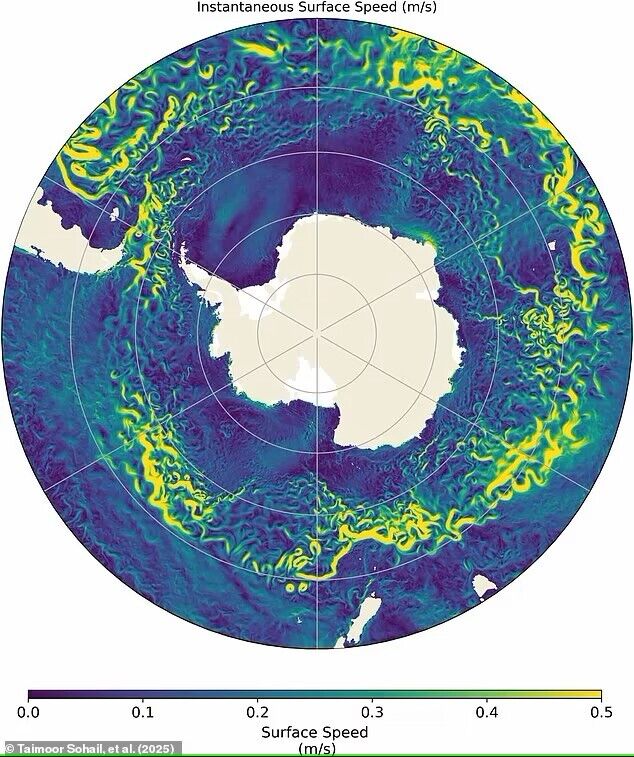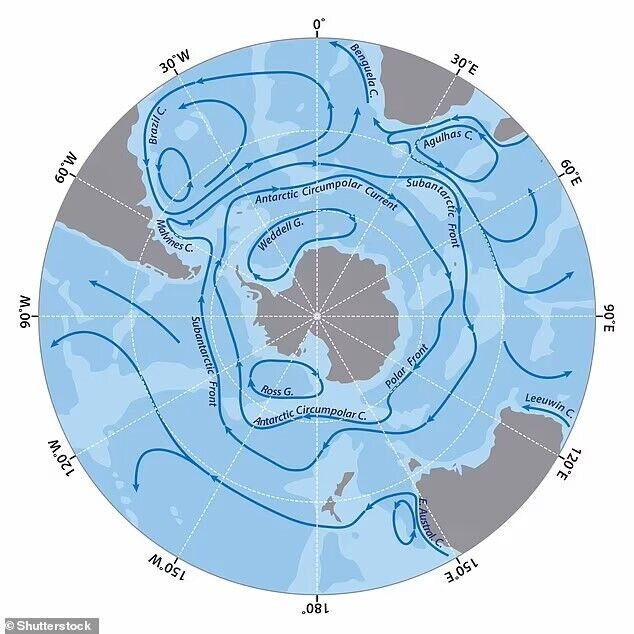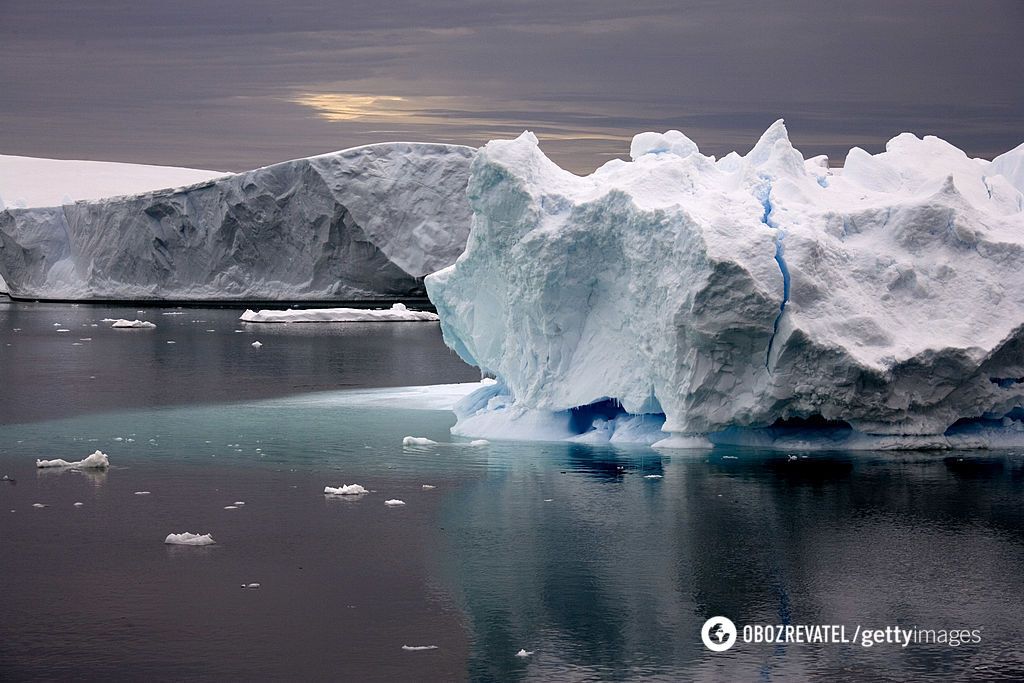News
Earth's most powerful ocean current slows down due to climate change: the consequences could be catastrophic
Scientists are warning that the Earth's strongest ocean current is slowing down due to climate change, which could have catastrophic consequences. The Antarctic Circumpolar Current (ACC) transports about 173 million cubic meters of water every second in a continuous ring around the entire Antarctic continent.
New research shows that by 2050, the ACC could become 20% slower due to climate change caused by human activity. If this happens, it could lead to a "vicious circle" of rapid ice melt, rising sea levels, and spiraling global temperatures, DailyMail writes.
According to scientists, the Antarctic Circumpolar Current, which is more than four times more powerful than the Gulf Stream, is a key part of the "ocean conveyor belt" that moves water, heat, and nutrients around the planet.
But as fresh water from melting sea ice flows into some areas of the Antarctic, the processes driving this conveyor belt will begin to weaken, experts explain.
"The ocean is extremely complex and well-balanced, but if this current 'engine' fails, serious problems could arise," said lead researcher Bishahdatta Ghayen, associate professor at the University of Melbourne.
"In particular, greater climate variability with extreme weather conditions in certain regions and accelerated global warming due to a decrease in the ocean's ability to act as a carbon sink," the scientist added.
Similar to its better-known northern cousin, the Atlantic Meridional Overturning Circulation (AMOC), the ACC is driven by cold, salty water.
According to scientists, the cold, dense water quickly sinks into the deepest "abysses" of the ocean and rushes northward, carrying oxygen and CO2, and churning up nutrient-rich sediments on the ocean floor.
The water is then pulled to the surface through a process called upwelling in areas such as the Southern Ocean south of Australia, bringing nutrients to the surface and driving the ocean current cycle, experts say.
However, recent studies have shown that sea ice around Antarctica fell to a record low last year.
"Melting ice sheets are dumping huge amounts of fresh water into the salty ocean. This sudden change in the 'salinity' of the ocean has a number of consequences, including a weakening of the sinking of surface ocean waters into the deep and a weakening of the strong ocean jet that surrounds Antarctica," said Dr. Gajen.
Using Australia's most powerful supercomputer, the scientists modeled how this process will affect the Antarctic Circumpolar Current in a scenario where greenhouse gas emissions continue to rise.
The modeling showed that ice melt alone will cause a 20% slowdown in the ACC by 2050. Current research shows that this slowdown will have a broad impact on the climate.
Only verified information is available on the OBOZ.UA Telegram channel and Viber. Do not fall for fakes!






























